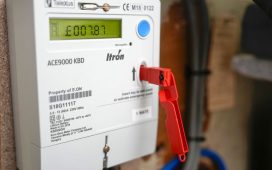Unlock the Editor’s Digest for free
Roula Khalaf, Editor of the FT, selects her favourite stories in this weekly newsletter.
Among the many unknowns of next week’s Budget, speculation is growing that chancellor Rachel Reeves is considering reducing the pension tax-free lump sum. Investment platforms and tax advisers say this possibility has led to a rush of customers looking to withdraw tax-free cash from their pension to avoid a Treasury tax grab.
What is the tax-free lump sum?
Currently, from age 55, you can usually take up to 25 per cent of your pension money without needing to pay tax. This is called the Pension Commencement Lump Sum (PCLS). It’s a major benefit of pensions, in addition to the upfront income tax relief that investors receive on contributions.
However, the tax-free lump sum is subject to a maximum allowance, set at £268,275 by the last government. This usually means that if people have built up big pensions, any money they take out above the allowance would be liable to tax.
The chancellor has reportedly stepped back from plans to introduce a flat rate of upfront tax relief on pensions after concerns about the impact this would have on public sector workers. However, there remain suspicions that she may cut tax-free cash to £100,000 to increase tax revenues.
Advisers say the tax-free lump sum is one of the best-loved and most understood parts of the pension system, and the ongoing speculation is damaging to long-term retirement planning. Michael Summersgill, chief executive of AJ Bell, an investment platform, has called for Reeves to make a long-term commitment to stability in the pension tax system.
Why are people withdrawing their tax-free cash early?
Investment platforms have reported people withdrawing pensions early in anticipation of the Budget. In September, Interactive Investor saw a 58 per cent increase in the volume of cash withdrawals from self-invested personal pension (Sipp) accounts that make up part or all of the 25 per cent tax-free lump sum allowance, compared with the same period in 2023.
Wealth managers also report clients coming to them with worries about pension tax-free cash. Ollie Saiman, co-founder of Six Degrees, a wealth manager, says: “Many clients have discussed with us the prospect of taking it prior to October 30.”
A cut in tax-free cash threatens to overturn meticulously crafted retirement plans by pushing up the amount of tax that people pay. Any cash taken above the tax-free allowance is liable to tax at the individual’s marginal rate. Hargreaves Lansdown has modelled scenarios where the lump sum is cut to anywhere between £225,000 and £100,000. The immediate cost to higher-rate taxpayers who are retiring could be additional income tax of between £17,310 and £67,310.
Myron Jobson, senior personal finance analyst at Interactive Investor, says: “Those approaching retirement who have already mentally allocated amounts above £100,000 for paying off their mortgage or repaying outstanding debts would be forced to go back to the drawing board and reallocate cash from elsewhere — or face a longer time burdened with repayments.”
Could taking my pension tax-free cash put me in a worse position? There are several factors to consider before taking tax-free cash.
First, outside a pension or another tax-efficient vehicle such as an Isa, money is subject to tax on growth and income. Plus, pension money is currently protected from inheritance tax; of course, this might be subject to reform in the Budget.
Second, by removing money from their pension, savers may miss out on future investment growth. Hargreaves Lansdown warns that some are placing their withdrawals into low-interest bank accounts, where its purchasing power is eaten away by inflation over time.
Isas, with their tax advantages, are potentially a good home for pension tax-free cash. However, the annual allowance is only £20,000 per person and so the cash might have to be drip fed into an Isa over a period of years.
Ultimately the decision depends on your personal circumstances. Saiman of Six Degrees says: “We have generally advised clients away from taking action that they wouldn’t otherwise have taken, based purely on Budget speculation. However, where clients already have plans in place, say, to take the PCLS or make gifts to their children within the next 12 months or so, bringing the timeline forward and doing it prior to October 30 can make sense.”
Can I change my mind and put it back into my pension?
Pension recycling is when a person reinvests some, or all, of their tax-free cash, back into their pension to maximise tax relief. The idea is that by putting the money back into your pension you can generate additional tax relief, and possibly build up fresh entitlement to more tax-free cash.
However, HM Revenue & Customs only allows limited recycling of tax-free cash. Clare Stinton, head of workplace saving analysis at Hargreaves Lansdown, warns: “Doing the hokey cokey with your tax-free cash — pulling it out and then putting it back in — could land you with a hefty tax charge.”
The rules are complex and if you are caught on the wrong side of them, your tax-free cash will be treated as an unauthorised payment and a charge of up to 55 per cent of its value will be due.










